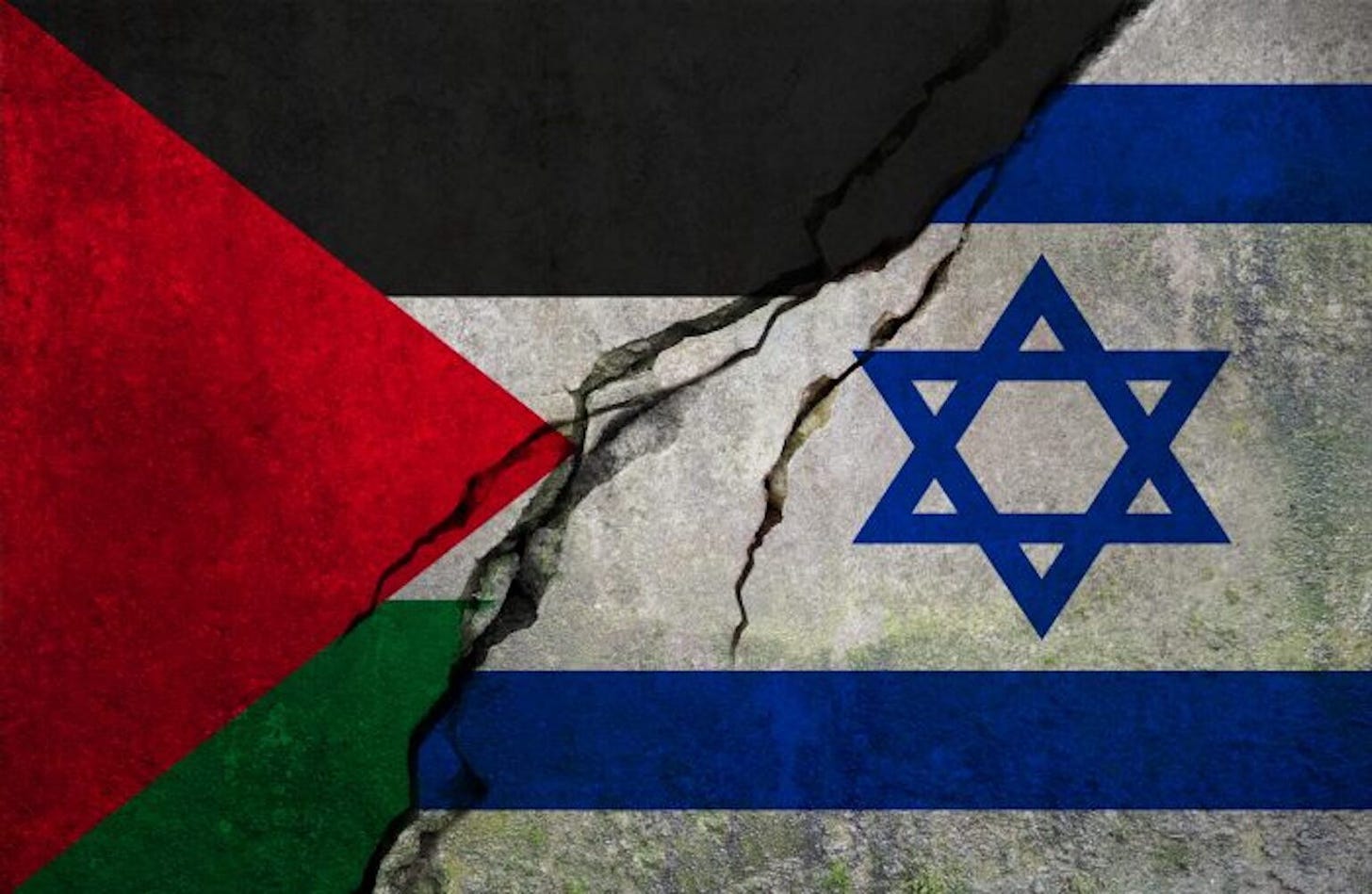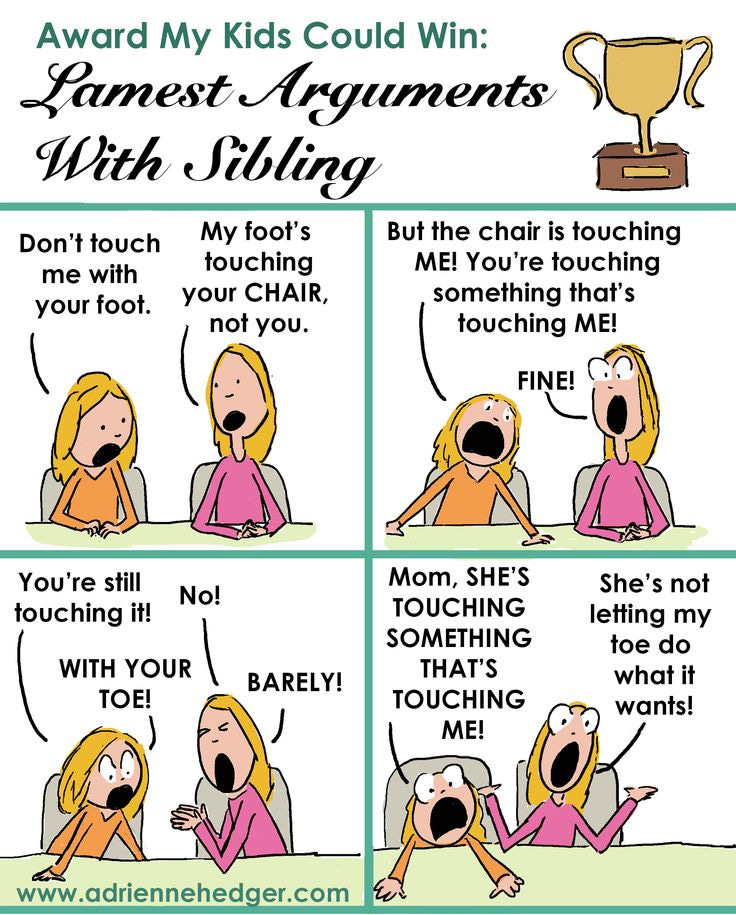Israel and the Palestinian Conflict, part 1: Introduction
Israel and the Palestinian Conflict, part 2: A historical perspective
Israel and the Palestinian Conflict, Part 3: Modern Israel
Israel and the Palestinian Conflict, part 4: Refugees
Israel and the Palestinian Conflict, part 5: Pallywood
Israel and the Palestinian Conflict, part 6: Duplicity as an art form
Israel and the Palestinian Conflict, part 7: Right of conquest
Israel and the Palestinian Conflict, part 8: Conclusion
A new series of articles will begin on the ArnGrimR substack. Topic: Israel and the Palestinian conflict. As usual, the series of articles will offer a deep dive into history, ancient and recent, and offer views that might be new or surprising, but always well supported.
Yes, I know: I am wading into a hornets’ nest. Whether you are pro-Israel or pro-Palestinian, I will likely upset you either way. Some more than others, too, as I think there are some important conclusion that can and should be drawn from a proper look at history.
This topic has been weighing heavy on my heart, seeing the reports come out since October 7th, and realize the death and suffering on Israeli side, and on Palestinian side. A lot of people are trapped in a situation not of their own making.
People outside of Israel and the Palestinian territories are very quick to jump to conclusions, and to judge, from the safety of their homes. Like me, in regards to ‘the safety of my home’. College campuses all over are in chaos, and just about every event seems to have to deal with pro-Palestinian protestors. They warn us about the genocide Israeli occupiers are inflicting on the poor Palestinian people. Others will be vehemently pro-Israel, defending everything Israel says and does. They are there by Divine Right! And who would dare argue with God, right?
So there is precious little actual conversation about this topic. People are entrenched, and the argument is emotional, about how people feel about this, colored by their various backgrounds. Not always, of course, but so often. We’ve all seen or heard this escalate so quickly with friends, family, online, at work,...
Apart from a severe lack of knowledge of the details on this conflict (let’s be honest: how many of us know more than surface detail things about this conflict that stretches back for decades, with so many important names, dates, people, events,...?), the main problem is the nature of this issue. It is very complex. We generally don’t do well with complex ideas. It is so easy to look at things from one side, taking that as the ‘truth’, and ignore or combat any deviation from that view. Granted, things don’t need to be complex to have this problem, but the more complex, the easier to fall into this trap.
Even this series will operate from a specific point of view, and I will be ignoring a good number of things in the explanations offered.
This is not a quarrel between 2 random people who just met, with a very clear beginning, cause of conflict, guilt, and resolution. Those are easy. A step up is a quarrel between 2 siblings. The cause of conflict, guilt and resolution might still be rather clear, but since we’re talking about 2 siblings, who lived together for a considerable length of time in very close proximity, there likely is no clear beginning.
A long-simmering feud, for example, can turn what on the outside looks very simple and innocuous into a full-blown eruption. One of the siblings might misinterpret a single word, a quick glance, or a sudden move as on purpose, meant to slight him or her, as happened so many times before. Whether or not that is the case, is irrelevant: it feels like that to the exasperated sibling, and boom, the fight is on... Anyone with siblings, or with 2 or more children, will recognize that. Or you’ve seen it among friends, at school, or at work.
Now ramp it up, and make not just the length more complex, but also the issue. Not between 2 parties, but between 3, or 5, or 12. Each with their own input, authority, and/or level of participation in the conflict at hand. Who knew what, and when? Who did what, and when? And how, exactly? What can the other side(s) reasonably be expected to have known? Is the response reasonable and within proportion? Does ‘reasonable’ and ‘within proportion’ mean the same for each of the parties involved? I could go on and on, and add countless ways things might become more complicated because of differences in culture, in history, in framework of thinking, and so on.
For the Westerners among us: we show our host that we had enough and are grateful for the meal received by finishing all the food on our plate. Clean plate club! It tells our host that the food we received was so delicious, we ate all of it. Can’t have another scoop, we’re completely full! Thank you so much!
In Northern Africa, on the other hand, that would be an insult to the host. It is telling them they did not fulfill their responsibility as a host, as they did not give enough food! The appropriate action is to leave a little on your plate. Look, it was so good, I ate a lot, but I couldn’t finish it. So much food! Thank you so much for providing your hospitality to us! (Yup, be careful around the dinner table!)
There are so many minefields like that, where we can so easily misunderstand each other, simply because we did not know the background of the other. A Lebanese friend of my father told this story, many years ago. He explained how we in Western Europe, from our Christian tradition, value charity. We help others, for example through social security and unemployment benefits. We understand that life can be hard at times, and we all band together to help each other. For an Arab, on the other hand, receiving money without requiring anything back in return, is a serious insult. We are, in effect, treating them like beggars. One of the worst insults one can level in the proud Arab culture!
My dad’s friend explained that simply requiring the people in line for their unemployment benefits to take a broom, and to sweep 1 tile in the hallway. Just 1 tile. Then he could go home, with the check in hand, and explain that he worked for it. Hugely overpaid, right, but still, this way he offered honest work for that money, and his honor remained intact. We in Europe expect gratitude and ‘buy-in’ to help the society that helped us in our hour of need, while we are actually deeply insulting those we allowed to live in our countries, without understanding their culture and how they think and act. In part because of a misguided idea that ‘we are all equal’, understood in way too simplistic terms. Amazing, isn’t it, how easy we can get things really wrong, while thinking we are doing good? Complex enough yet?
And then there is the answer to who bears guilt... We like a simple ‘good guy vs bad guy’ story, and tend to think like that whenever confronted with conflict. Problem is, that in many cases this is not how reality works. Guilt often is distributed: he should not have done this, but she should not have said that... Or what about party A doing something, having been given permission by party B, and party C responds to party A because they got permission from party D? Who is wrong? Who is going to adjudicate between Party A and C, who did the 2 acts, or party B and D, who gave the respective permissions? Each side could have acted and thought within their own framework of precedent and jurisprudence, without realizing that those rules and habits do not apply to the other side. Can we really make a simple determination about guilt, in that case?
You start to see how hopelessly complex things can get. And how quickly.
Now, look at Israel and the Palestinians. You have the League of Nations, the UN, the British, the United States, France, Egypt, Transjordan and then Jordan, the Palestinians, the Ashkenazi Jews from the Central and Northern European diaspora, the Mizrahi from the Middle-Eastern diaspora, the Sephardic Jews from the Spanish diaspora, add in the Ethiopian Jews, and to end, those Jews who never left the area that is now Israel and the Palestinian territories... And Palestinians? Who are that? A mix of Arabs, Druze, Assyrians, Arameans, Copts, Samaritans, Bedouin, Ahmadiyya, Muslim and Christians alike. All non-Jewish people who lived in that area. Are they all ‘Palestinian’, just like that? No. A good number of those groups have a special status within Israel, with different rights and responsibilities. And with that realization things suddenly got that much more complex.
Then you have religion. God gave us this land! Which God? The God of the Jews? Of the Christians? Of the Arabs? What about the secular people there, who recognize no God or god or gods? How to deal with religiously backed claims in the political realm? How to decide on what to do with the Temple mount? Yeah... Sheer impossible without offending anyone or everyone at the same time.
And then politics. Are we talking about Likud, Yash Atid, Shas, Mafdal, Yisrael Beiteinu, Labor, Noam, United Arab list? There is a ton more, but this suffices to show the wide breath of political views, philosophically ranging from Green, to left-leaning, communist, ultra-orthodox, Supremacist, nationalist, conservative, social democratic, Islamic, ...
Palestinians have Hamas, Fatah, the Palestinian People’s Party, Islamic Jihad Movement, Palestinian Communist Party, Abu Nidal Ashqar Wing,... Again, ranging from far right to far left, ultra-Islamist to secular.
Or let’s talk about the US. Are we talking about the Kennedy Administration? Clinton? Reagan? Obama? Bush? Truman? Or are we talking about Kissinger, or William Rogers? Perhaps Brzezinski? Each left their own mark, with their own emphasis, likes, and dislikes. Each is seen different through the eyes of all the other foreign actors and parties... Can we really talk about “THE American Israel/Palestinian policy”, as if it is a single, monolithic bloc, with a single, unified policy?
It is not easy to think about and analyze something that is so complex. For me, it helps to try to put it down to its core elements, and to see if there any red lines that become visible throughout the multitude of information points. Any trends, habits, directions that become visible? Any differences, similarities? Is there another point of view that could explain these same observations? How can those be harmonized? This series will try to guide you through one way of thinking about this.
In an article on the competencies for complex thinking, the following great breakdown was given:
Three types of thinking (or sub-competencies) are valued in mastering the reasoning-for-complexity competency:
Systemic Thinking: This is the ability to integratively analyze inter- and transdisciplinary problems. Systemic thinking allows to appreciate reality interconnectedly, considering its complexity and multiple elements. An individual who thinks systemically approaches problems holistically, avoiding reductionism and understanding the dynamics of the elements and the surrounding factors [6].
Critical Thinking: Critical thinking is a sub-competency allowing individuals to evaluate the validity of reasoning in order to make logical judgements about a situation or problem, which is fundamental for understanding the contemporary world; it allows them to evaluate reality, problematize development, and rethink existing paradigms in terms of current affairs [7].
Scientific Thinking: This sub-competency is based on the visualization and resolution of problems with objective, validated, and standardized methods that address reality through inquiry and evidence-based research. The evidence adds certainty to decision-making processes for a complex world. Complementary to systems thinking and critical thinking, scientific thinking allows the individual to solve environmental challenges using various cognitive processes such as inductive and deductive reasoning and the formulation and testing of hypotheses.
Others will add creative thinking to that list, where thinking outside the box is encouraged as a way to find new solutions.
Another point to keep in mind: Public opinion memory is usually very short. It goes from one crisis to the next, from one victory to another. Todays hero can easily become tomorrows villain, or vice versa, without ‘the people’ batting an eye. Hitler was praised, and became Time Man of the Year in 1938. True, that particular issue was not flattering, but according to Despina Stratigakos, a historian who wrote “Hitler at Home” (a book about “how propagandists used lifestyle stories to soften Hitler’s image prior to World War II”), “These news stories filled your head with positive images of Hitler. I was shocked at the extent of it and how late they appeared.”
On Aug. 20, 1939, the New York Times Magazine published an article describing the day-to-day life at Hitler’s mountain chalet.
This was 12 days before Germany invaded Poland and started World War II, nine months after the violent anti-Jewish pogroms of Kristallnacht, and six years after the first Nazi concentration camp opened at Dachau.”
Stratigakos wrote how those ‘harmless’ fluff stories became powerful propaganda, result of a carefully orchestrated public relations campaign.
A small positive note here, another positive signal there, with many other such ‘little’ stories, nudge our subconscious thinking towards liking that person or that cause. The same happens powerfully in the negative. Small stories and lies about a person, depicting them as negative, add up, progressively. Even if later debunked, the initial ‘feeling’ remains, and is much harder to get rid of, especially if the initial false story was days on end front-page news, and the retraction just a single small article, page 13, at the bottom, between some advertisement for tooth paste and the obituaries. For more information how this kind of influencing happens, see The War for Our Minds, Part 8: the influence attempts are real and The War for our Minds, Part 9: Apophenia and Pareidolia - mistakes we all make.
Importantly, look my recent article Red-pills and parables, detailing how our thinking needs to undo a lot of falsehoods and misconceptions, sometimes really deeply ingrained.
Our thinking about Israel and the Palestinians is likely also riddle with errors and misconceptions. I don’t say that in a belittling way, as an accusation. I could be completely wrong, too, on parts of these articles, or in my conclusions I am drawing from them. If you think that is the case, let me know in the comments, explaining what exactly I said is wrong, and, most importantly, WHY it is wrong. I am absolutely open to correction. The topic is too important.
So I invite you to come along for a deep dive into Israel’s history, the story of the Palestinians, and the conflict between both groups. Not exhaustive, certain elements I won’t talk about in much detail, or at all.
Keep in mind, as you go through the series, that the goal is NOT to offer a single binding solution or view on Israel, either, that you MUST accept. It does offer the outlines for a framework within which you then can think and talk about Israel and Palestinians. As any good framework, it should allow you to quickly place new facts, and help you understand them better. The facts are there, however, and need to be incorporated in whatever position you want to take, without contradiction or material omission.
This will be a multi-part series, with about 9 planned articles.
Feel free to share, and to participate in the conversation by commenting. Keep it civil, and support your claims: that way we all can learn from your input.
Keep an eye out, I will post the articles every 3 days.









Excellent, excellent!!
https://truthsocial.com/@RichardTheSaint/112754006708406587
Excellent! Thank you so much for this effort. So many have so little understanding or appreciation of the complexity of the current situation. Big thanks for such widespread ignorance goes to all the active forces worldwide who support the diabolical world of evil. Looking forward to your series.